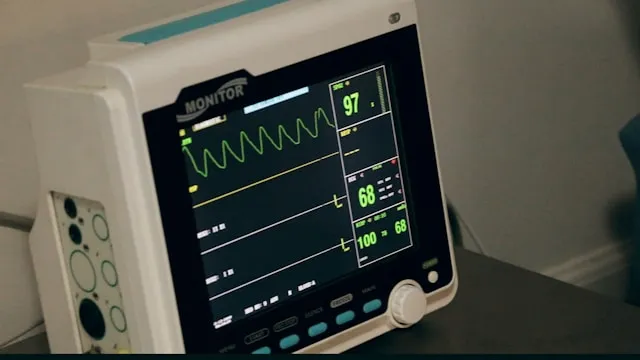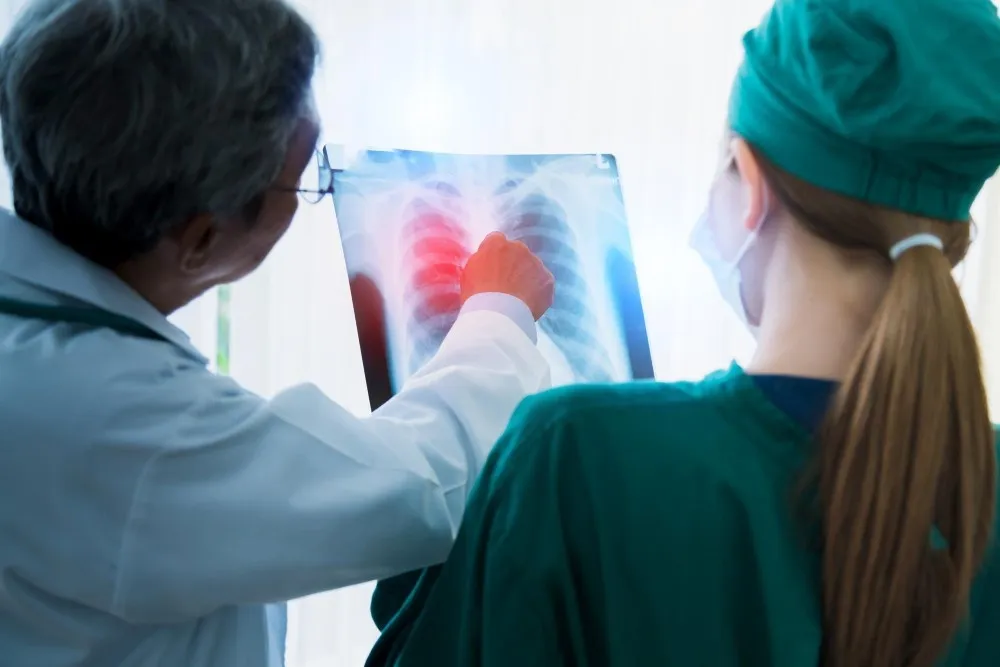What is Stomach Cancer?
Also known as gastric cancer, gut cancer or stomach cancer is a disorder in which the stomach cells start multiplying at an uncontrolled rate, forming a tumour. The tumour may spread along the wall of the stomach or grow directly through it and enter the blood stream or lymphatic system, from where it can spread to other organs.
There are different types of gut cancers depending upon the type of gut tissue they originate from:
- Adenocarcinoma - The most common form of stomach cancer, an adenocarcinoma originates in the glandular lining of the stomach. The gland cells, present in the inside lining of the stomach (mucosa), produce mucous and stomach juices. The tumour can invade deeper into the stomach wall and cross it to invade surrounding organs like the pancreas or liver, or spread up or down to the oesophagus or small intestine, or break into the blood stream or lymphatic system and spread to distant parts of the body (metastasis).
- Lymphoma - This form of gut cancer originates in the lymphatic tissue in the wall of the stomach.
- Sarcoma - This type of stomach cancer arises from the connective tissue (muscle, fat or blood vessels) in the wall of the stomach.
- Gastrointestinal Stromal Tumour (GIST) - This is a rare form of stomach cancer that originates from the nervous system cells found in the stomach.
- Carcinoid Cancer - This is another rare form of gastric cancer originating from the hormone-producing cells in the stomach.
What are the Causes of the Disorder?
The exact reason for stomach cells to start multiplying uncontrollably is unknown but certain risk factors make some people more prone to gut cancer than others. These include:
- Helicobacter pyroli infection (infecting the mucosal lining of stomach)
- Chronic inflammation of stomach
- High salt and smoked food diet; diet poor in fruits and vegetables
- Smoking
- Lack of physical activity
- Family history of stomach cancer
What you Need to Know about Symptoms or Signs?
The following symptoms develop as the cancer progresses:
- Discomfort and pain in stomach
- Bloating after meals
- Feeling of fullness even after small meals
- Difficulty swallowing
- Persistent nausea, vomiting
- Heartburn
Which Specialist should be Consulted in Case of Signs and Symptoms?
Persons who experience abnormal gastrointestinal problems that do not go away must consult a general physician who will refer them to a gastroenterologist (specialising in the treatment of gastrointestinal problems). Further diagnosis and confirmation may also require the help of an oncologist (specialist in treating cancers).
What are the Screening Tests and Investigations Done to Confirm or Rule out the Disorder?
Diagnostic procedures for stomach cancers include:
- Physical examination - The doctor will look for swelling, fluid accumulation or other changes in the abdomen, along with any swelling in the lymph nodes.
- Endoscopy - A thin tube carrying a tiny camera at its end is inserted in to the mouth and passed through the oesophagus to reach the stomach. The procedure can detect cancerous growth and also collect samples for further testing in the laboratory (biopsy).
- Imaging tests - Computerised tomography (CT scan) can detect and create images of abnormal cancerous growth in the gut.
Staging of Stomach Cancer
The doctor also conducts tests to determine the extent of cancer growth, which will be useful in outlining the right treatment plan for the patient. This is done through imaging tests like CT scan or positron emission tomography (PET Scan) or laparoscopic surgery.
What Treatment Modalities are Available for Management of the Disorder?
The doctor outlines a treatment plan depending upon the location and size of the tumour, extent of its spread, and the patient's overall health. Gut cancer can be treated through the following methods:
Various options are available for surgical removal of gut cancer:
- Surgical Removal of Early Stage Tumour - Endoscopic mucosal resection is an endoscopic procedure that removes small tumours restricted to the inner stomach wall lining.
- Subtotal Gastrectomy - Only the stomach portion affected by the tumour is removed.
- Total Gastrectomy - The entire stomach and surrounding healthy tissue is removed. The doctor connects the oesophagus directly to the small intestine.
- Removal of Lymph Node - Lymph nodes in the abdomen are examined are removed if found to contain cancerous cells.
- Surgery to Alleviate Symptoms - A part of the stomach is removed in advanced gut cancers to relieve patients of the symptoms.
- Chemotherapy - Chemotherapy uses drugs to kill cancerous cells. It may be given before a surgery to shrink the tumour (neoadjuvant chemotherapy) or after the surgery to kill any remaining cells (adjuvant chemotherapy). It is commonly given together with radiation therapy.
- Radiation Therapy - High power energy beams like X-rays are used to kill cancer cells. Radiation may be used in conjunction with surgery, either before (neoadjuvant radiation) or after (adjuvant radiation), and is also commonly used together with chemotherapy.
What are the known complications in the management of the disorder?
Stomach cancer and its treatment may affect the digestive ability of a patient's body. Patients may experience nausea, vomiting, diarrhea, and constipation. Liquids may pass too soon into the small intestine post-surgery.
What are the dietary and physical activity requirements during the course of the treatment?
Recovering patients may need to make some changes in their diet plan to allow smooth digestion and absorption of food:
- Small, more frequent meals
- Restricting sweet foods and drinks
- Drinking liquids before and after meals
Regular health check ups after treatment will ensure that any changes in health can be treated at the earliest. If you are looking for the best hospital to provide you with expert advice on stomach cancer treatment and complications, you can also contact Barasat Narayana Hospital or if are you looking for the best gastroenterologist in Hyderabad, you can visit the doctor.

Reviewed by







